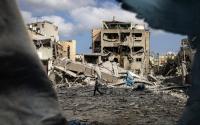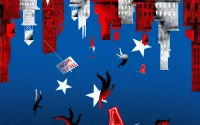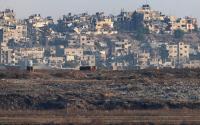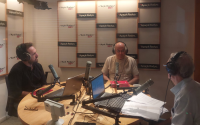Turkish membership of the EU can bridge the gap between the West and the Islamic world and avert a clash of civilisations, says Turkey's Prime Minister, Recep Tayyip Erdogan, who warned of the danger of rebuffing his country.
Ahead of an EU summit this week, Mr Erdogan said there were "some reasons" to believe a conflict is looming but added: "Turkey is a catalyst to make sure we have harmony of civilisations. It is a bridge between the Islamic world and the rest of the world."
Describing Turkey as a "guarantee of an entente between the civilisations", Mr Erdogan said the country's integration into the EU is "the project of the century".
Asked what would happen if Turkey's bid for membership talks collapsed, he replied: "If Turkey is not taken in then everyone will have to continue with the status quo. This is a danger we have right now."
EU heads of government meet in Brussels on Thursday to set a date for negotiations designed to lead to the accession of the first predominantly Muslim country to the EU.
Speaking to The Independent, Mr Erdogan spelled out his bottom line for this week's summit to set the terms imposed on Turkish membership talks, and hit out at the Cypriot government, accusing it of trying to move the goalposts and add new conditions.
Though his rhetoric was tough, Mr Erdogan hinted at flexibility over one diplomatic impasse concerning Cyprus, and accepted that Turkey could not be guaranteed membership if talks are launched.
Negotiations with Turkey are expected to take at least a decade. In Germany, France and Austria, opposition to Turkish membership is strong, stirred by a vigorous debate over immigration. But supporters of Turkish accession argue that it is vital to launch membership talks, both as a symbol to the Islamic world and as a means of sustaining reforms in Turkey.
Opponents of Turkey's EU membership mobilised in Istanbul yesterday, at the urging of the far-right Nationalist Action Party. Thousands of Turkish nationalists waved red-and-white Turkish flags and chanted slogans at the rally in Istanbul, shouting: "Our flag will not come down and our nation will not be divided."
Mr Erdogan ruled out any reference in the summit deal to an alternative to full EU membership for Turkey - such as the "privileged partnership" suggested by Austria - and said he could not grant formal recognition to Cyprus.
On Cyprus, he added: "We are just expressing our outrage at the extraordinary conditions that are being used to try to pressure us. The game has started. The rules of the game should not be changed while the game is going on. When you have a soccer game, do you change the rules while the game is going on?" However he did not exclude a more limited demand in the current draft text which would mean extending a customs union to all 10 countries that joined the EU this year - including Cyprus. And he accepted that the start of negotiations cannot guarantee Turkey a place in the EU.
Those signs of flexibility suggest that the current diplomatic stand-off will be bridged by the time the EU leaders leave Brussels on Friday.
Mr Erdogan said he was expecting talks on the basis of an application for "unconditional full membership", and required an "exact date of the start of negotiations" without having to meet a second time. He also insisted there should be no new conditions imposed on Turkey because it has fulfilled its part of the bargain by making sufficient progress over EU human rights standards, called the "Copenhagen criteria".
Mr Erdogan said "no political criteria that are not included in the Copenhagen political criteria should be pressed upon Turkey. These are permanent limitations [on areas such as the free movement of workers], [recognition of] Cyprus, other things. There can be some temporary limitations [on workers] but having permanent limitations is against [EU law]."
The Turkish Prime Minister added: "It is not possible for us to accept any pressure on any issue that is not included in the Copenhagen political criteria."






